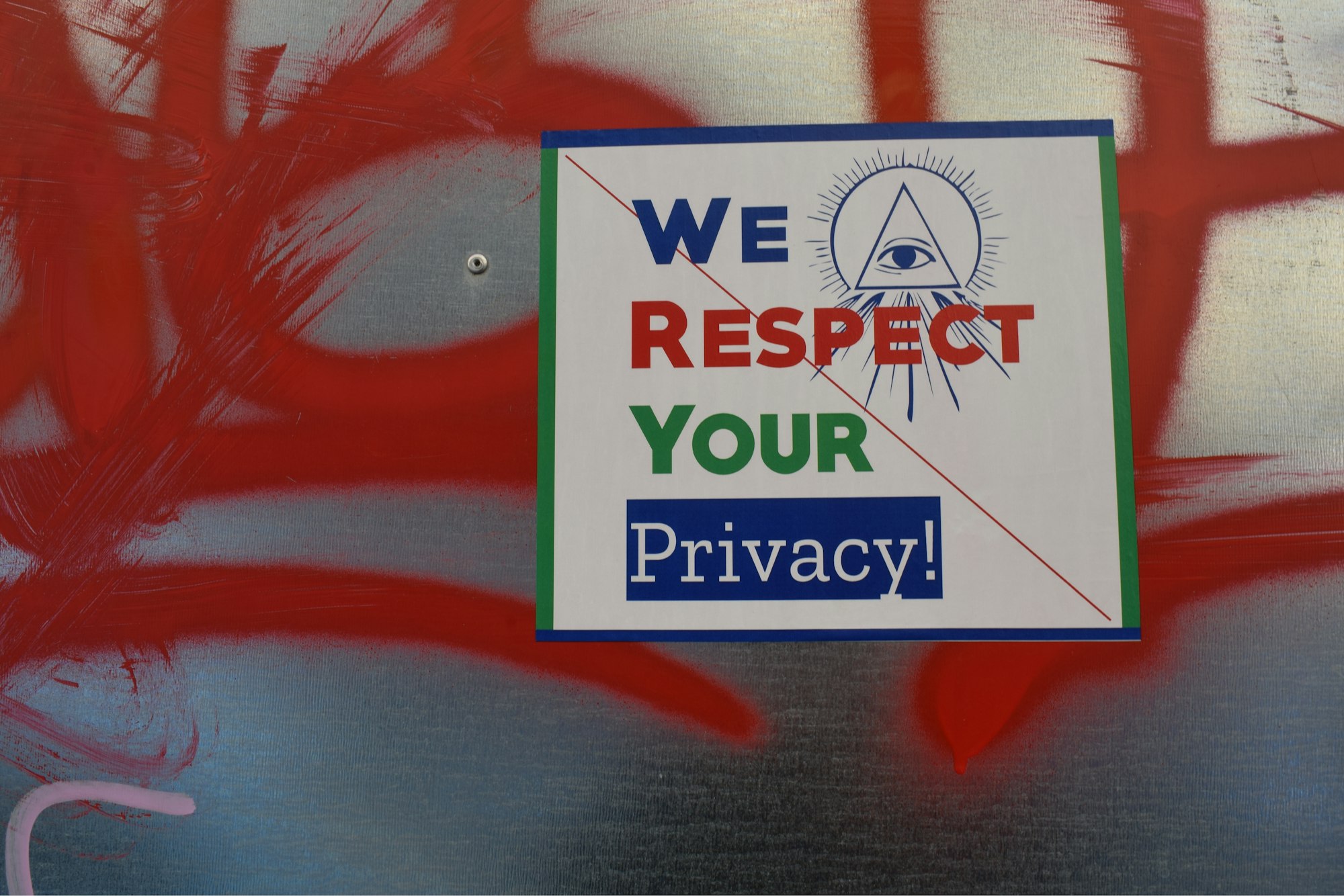Form Responders' Rights
Ensure the privacy of form responders by following data privacy regulations and implementing best practices. Learn about form responders' rights and how to protect their sensitive information.
Forms are a crucial aspect of online communication and data collection. They help businesses and organizations gather essential information from their customers, clients, and employees. However, with the increasing use of forms for data collection, it's crucial to understand the rights of form responders and how to protect them. This guide will help you understand the rights of form responders, the importance of protecting their data, and tips to ensure their rights are protected.
As we move further into the digital age, it's important to understand the importance of data privacy and security. Form responders have the right to expect that their information will be protected and used appropriately. From protecting their personal information to ensuring their data is not used for malicious purposes, form responders have certain rights that must be upheld. This guide will provide a comprehensive overview of these rights and provide tips on how to ensure they are protected.
Table of Contents:
- Understanding the Rights of Form Responders
1.1 Right to Privacy
1.2 Right to Data Security
1.3 Right to Data Access
1.4 Right to Data Accuracy
1.5 Right to Data Deletion - Importance of Protecting Form Responders' Rights
2.1 Compliance with Data Privacy Regulations
2.2 Maintaining Trust with Form Responders
2.3 Improving Data Quality
2.4 Protecting Against Data Breaches - Best Practices for Protecting Form Responders' Rights
3.1 Providing Clear Privacy Policies
3.2 Encrypting Sensitive Data
3.3 Regularly Monitoring and Updating Security Measures
3.4 Obtaining Explicit Consent for Data Collection
3.5 Providing Easy Access to Responders' Data - Conclusion
- Additional resources
1. Understanding the Rights of Form Responders
Form responders have a number of rights that must be upheld to ensure their information is protected. The following sections will discuss the various rights form responders have and how they can be protected.
1.1 Right to Privacy
Form responders have the right to expect that their personal information will be kept private. This includes their name, address, email, phone number, and any other sensitive information they provide through a form. Personal information should be collected only when it's necessary and used only for the purposes it was collected. Additionally, personal information should be kept secure and not disclosed to unauthorized third parties.
1.2 Right to Data Security
Form responders have the right to expect that their data will be stored securely and protected against unauthorized access. This includes measures such as encryption, firewalls, and regular security updates to prevent data breaches. Organizations should also have proper disaster recovery plans in place to ensure data can be restored in the event of a breach or other disaster.
1.3 Right to Data Access
Form responders have the right to access their personal data and review it for accuracy. They should be able to request a copy of their data and have it provided to them in a timely manner. Organizations should have processes in place to ensure data can be easily retrieved and provided to form responders upon request.
1.4 Right to Data Accuracy
Form responders have the right to expect that their data will be accurate and up-to-date. Organizations should have processes in place to validate and verify data as it's entered, and should regularly review data for accuracy. Form responders should also be able to update their information as needed and have their requests for changes processed in a timely manner.
1.5 Right to Data Deletion
Form responders have the right to request that their data be deleted from an organization's records. Organizations should have processes in place to ensure data can be easily deleted upon request, and should not retain data for longer than is necessary. It's important to note that in some cases, organizations may be required by law to retain data for a certain period of time, but in these cases, they should still provide form responders with the option to have their data deleted.
2. Importance of Protecting Form Responders' Rights
Protecting the rights of form responders is important for a number of reasons, including compliance with data privacy regulations, maintaining trust with form responders, improving data quality, and protecting against data breaches.
2.1 Compliance with Data Privacy Regulations
Many countries have data privacy regulations that organizations must comply with, such as the European Union's General Data Protection Regulation (GDPR) and the California Consumer Privacy Act (CCPA). Compliance with these regulations is essential to ensure form responders' rights are protected, and failure to comply can result in substantial fines and damage to an organization's reputation.
2.2 Maintaining Trust with Form Responders
Form responders trust organizations with their personal information, and it's essential for organizations to maintain that trust by protecting their information. Organizations that fail to protect form responders' information risk damaging their reputation and losing their trust.
2.3 Improving Data Quality
Protecting form responders' rights can also help improve the quality of data collected. When form responders trust an organization and feel that their information is protected, they are more likely to provide accurate and up-to-date information.
2.4 Protecting Against Data Breaches
Protecting form responders' rights is also essential to protect against data breaches. Data breaches can result in sensitive information being disclosed to unauthorized third parties, which can have serious consequences for both form responders and organizations. By implementing proper security measures, organizations can reduce the risk of data breaches and protect form responders' information.
3. Best Practices for Protecting Form Responders' Rights
There are several best practices that organizations can follow to protect the rights of form responders. These include providing clear privacy policies, encrypting sensitive data, regularly monitoring and updating security measures, obtaining explicit consent for data collection, and providing easy access to responders' data.
3.1 Providing Clear Privacy Policies
Organizations should have clear and concise privacy policies that explain how form responders' information will be collected, used, and protected. Privacy policies should be easily accessible and understandable, and should be updated regularly to ensure they remain relevant and up-to-date.
3.2 Encrypting Sensitive Data
Sensitive data, such as credit card numbers and social security numbers, should be encrypted to protect against unauthorized access. Organizations should use strong encryption algorithms and regularly update their encryption methods to ensure data remains secure.
3.3 Regularly Monitoring and Updating Security Measures
Organizations should regularly monitor their security measures and update them as needed to ensure they remain effective. This includes regularly updating software, applying security patches, and conducting regular security audits.
3.4 Obtaining Explicit Consent for Data Collection
Organizations should obtain explicit consent from form responders before collecting their information. This includes informing form responders of the specific information that will be collected and how it will be used. Organizations should also provide form responders with the option to opt-out of data collection if they choose.
3.5 Providing Easy Access to Responders' Data
Organizations should provide form responders with easy access to their data, including the ability to view, update, and delete their information. This can be achieved through the use of secure online portals, customer service portals, or other methods that allow form responders to access their information easily and securely.
4. Conclusion
In conclusion, form responders' rights are essential to protect, and organizations should take all necessary steps to ensure their information is collected, stored, and used in a way that respects their rights. By implementing best practices, such as providing clear privacy policies, encrypting sensitive data, regularly monitoring and updating security measures, obtaining explicit consent for data collection, and providing easy access to responders' data, organizations can ensure that form responders' rights are protected and that their information is kept secure.
In today's digital age, it's more important than ever for organizations to prioritize the protection of form responders' rights. With the increasing amount of sensitive information being collected through forms, it's crucial for organizations to be proactive in protecting this information and ensuring that form responders' rights are respected. By doing so, organizations can maintain the trust of form responders and ensure the integrity of their information.
5. Additional Resources
For more information on form responders' rights and data privacy, organizations can consult the following resources:
- European Union General Data Protection Regulation (GDPR)
- California Consumer Privacy Act (CCPA)
- National Institute of Standards and Technology (NIST) Cybersecurity Framework
- International Association of Privacy Professionals (IAPP)
Organizations can also seek the advice of data privacy experts and legal professionals to ensure they are fully compliant with relevant data privacy regulations and that they are taking the necessary steps to protect form responders' rights.




